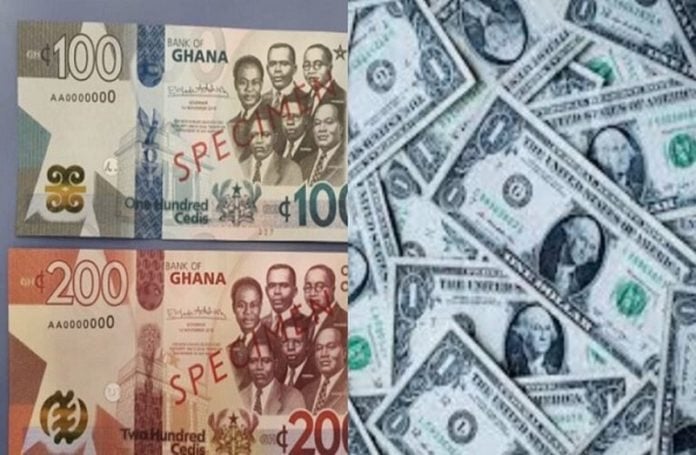The Ghanaian Cedi’s Struggle: A Deep Dive into Depreciation and Exchange Rate Dynamics
The Ghanaian cedi has been experiencing a persistent decline against major international currencies, notably the US dollar, British pound, and euro. This depreciation trend, observed on Tuesday, September 2, 2025, reflects the challenges faced by the Ghanaian economy and its impact on currency valuation. This analysis delves into the specifics of the exchange rates, examining the discrepancies between interbank and forex bureau rates, and the implications for international transactions, remittances, and digital subscriptions. Understanding these complexities is crucial for businesses, individuals engaging in cross-border transactions, and policymakers striving to stabilize the cedi.
Current Exchange Rate Landscape: A Multi-Faceted View
As of September 2, 2025, the cedi’s value against the US dollar stood at an average buying rate of GHS11.42 and a selling rate of GHS12.07, as reported by Cedirates.com, a reputable Ghanaian currency and fuel rate tracker. However, a significant disparity emerges when comparing these rates to those offered at forex bureaus, where the dollar purchases commanded GHS12.30 and sales reached GHS12.70. This gap between the official and bureau rates reflects the market dynamics and the varying premiums applied by currency exchange providers. The Bank of Ghana’s interbank market, reflecting transactions between banks, presented slightly different rates: GHS11.59 for buying and GHS11.61 for selling US dollars. This difference highlights the tiered nature of the currency market.
The cedi also faced depreciation against the British pound and the euro. Forex bureaus offered buying rates of GHS15.34 and GHS13.27 for the pound and euro, respectively, while their selling rates reached GHS16.25 and GHS14.10. The Bank of Ghana’s interbank rate for the pound was GHS15.72, while the euro was valued at GHS13.58. These rates, when compared to the dollar rates, highlight the interconnectedness of global currency markets and the cedi’s overall weakening position.
Remittances and Digital Subscriptions: Navigating Exchange Rate Variations
The exchange rate landscape becomes even more intricate when considering remittances and digital subscriptions. Money transfer services like LemFi and Afriex offer varying rates for remittances from the US or UK to Ghana. For dollar remittances, LemFi and Afriex offered GHS11.70 and GHS11.80, respectively. Pound remittances were quoted at GHS15.49 and GHS16.05 by LemFi and Afriex, respectively. For euro remittances, Afriex and Lemfi provided rates of GHS13.80 and GHS13.68, respectively. These varied rates reflect the operational costs, competition, and currency conversion margins applied by different remittance providers.
For digital subscriptions such as Netflix, Spotify, and Apple Music paid via Visa and Mastercard, the exchange rates were recorded at GHS12.63 and GHS12.79, respectively. These rates typically align with the prevailing market rates and highlight the impact of currency fluctuations on the cost of digital services for Ghanaian consumers.
Implications of Cedi Depreciation: Economic Challenges and Policy Responses
The persistent depreciation of the cedi presents several challenges for the Ghanaian economy. It contributes to inflationary pressures by increasing the cost of imported goods and services. This, in turn, impacts consumer purchasing power and can erode the standard of living. Businesses reliant on imported inputs face higher operational costs, potentially leading to reduced investment and economic growth. Moreover, cedi depreciation adds to the burden of external debt denominated in foreign currencies, making it more expensive for Ghana to service its debt obligations.
Addressing the challenges posed by cedi depreciation requires a comprehensive approach involving both monetary and fiscal policies. The Bank of Ghana may implement measures to manage money supply, adjust interest rates, and intervene in the foreign exchange market to stabilize the currency. Fiscal policies aimed at promoting export diversification, reducing reliance on imports, and strengthening the overall macroeconomic environment are equally crucial. A combination of sound economic management, structural reforms, and prudent fiscal measures can contribute to strengthening the cedi and building a more resilient economy.
Navigating the Exchange Rate Maze: Strategies for Businesses and Individuals
Businesses engaged in international trade and individuals making cross-border transactions must navigate the complexities of the fluctuating exchange rates. Hedging strategies, such as forward contracts and currency options, can help mitigate the risks associated with currency fluctuations. Staying informed about market trends and seeking expert advice on currency management can assist businesses in making informed decisions. For individuals, comparing exchange rates across different providers, utilizing remittance services that offer competitive rates, and planning transactions strategically can help optimize costs.
Looking Ahead: Factors Influencing the Cedi’s Future
The future trajectory of the Ghanaian cedi will depend on several factors, including global economic conditions, commodity prices, investor confidence, and domestic economic policies. External factors such as changes in US monetary policy, global economic growth, and commodity price fluctuations can significantly influence the cedi’s value. Internally, the effectiveness of government policies in stabilizing the economy, promoting export-led growth, and attracting foreign investment will play a crucial role in determining the cedi’s long-term performance. Continuous monitoring of these factors and proactive policy adjustments are essential for maintaining a stable and competitive currency.


